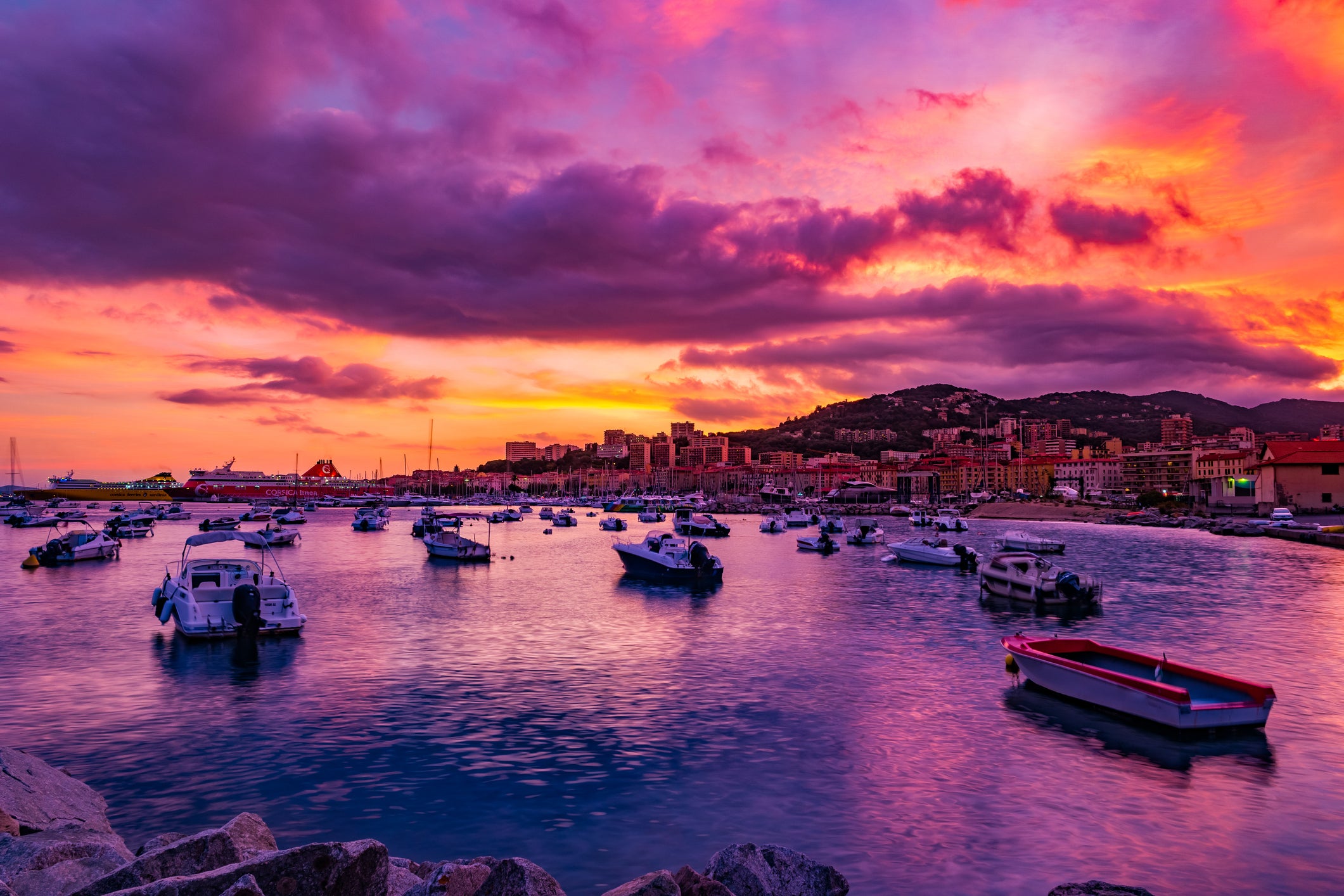Is there an easier way to get to Corsica’s beautiful capital?
Simon Calder answers your questions on Ajaccio, Italian city breaks and Covid rules


Q I am looking for flights to Corsica this August, preferably Ajaccio, but can’t find any direct ones from the UK on a day that would suit us. Do you know if airlines like easyJet will be announcing more flights to Corsica soon?
Helen S
A I am afraid I hold out no hope for an increase in the number of flights between the UK and Corsica this summer. There are direct departures on British Airways from Heathrow and on easyJet from Gatwick. But both airlines fly to Bastia in the north of the island on Saturdays and to Figari in the south of Corsica on Sundays.
My research indicates no summer flights from the UK to Ajaccio, the island’s beautiful capital on the west coast.
The existing flights are designed to fit in with the traditional weekend-to-weekend holidays lasting a week or two, and I daresay a portion of the seats are dedicated to tour operators. How can it be that there is so little flying direct to such a luscious destination – so intense and exotic?
Well, even before the pandemic, Corsica was a niche destination for British travellers. Accommodation in July and August is in short supply, and without somewhere to stay at a reasonable price UK visitors will go elsewhere. If anything, Covid has bolstered the appeal of Corsica for French holidaymakers. Airlines will not lay on speculative flights if they perceive what is effectively a cap on visitor numbers during the very months when they would have a hope of commanding decent fares. In addition, British Airways and easyJet are showing signs of overstretch this summer – each is cancelling about 70 flights daily, and I imagine neither has any appetite for increasing frequency to Corsica or adding a new route to Ajaccio.
Jet2, Ryanair and Wizz Air appear better resourced, but I imagine that if Corsica appears anywhere in their plans it will be for summer 2023.
Meanwhile, I suggest you turn the lack of non-stops to your advantage: Bordeaux, Nantes and Nice are among the places where you could break your journey. Alternatively fly to beautiful Marseille and take the ferry – an overnight adventure.

Q Four adults want to go to Italy for a five-night city break in mid-July. Can you please advise the best location and things to see and do?
Maggie P
A Italy, I believe, has the most entrancing range of cities of any European country. Top of my list is Naples, but the height of summer is certainly not the ideal time to be there because of the heat: I love the city from September to May inclusive.
Instead, base yourselves in Milan – for three strong reasons. First, the “northern capital” has all the ingredients for a great Italian city: good looks with some outstanding architecture, a deep and diverse spectrum of culture, plus great places to eat and drink.
Second, a whole range of day trips can be made cheaply and easily from Milan. Top of my list is Como: Trenord trains from Milano Cadorna take one hour, cost less than €10 for a return and drop you right on the lakeshore, close to the ferry docks. Smaller nearby cities are also worth a trip out, in half an hour or less. Ten miles northeast, you can explore the medieval joys (and motor-racing) heritage of Monza; 20 miles south, the glorious Renaissance monastery of Certosa di Pavia.
Third, because July is low season in business-oriented Milan you can get some absurdly good deals. I have just priced up a five-night trip with British Airways Holidays – which I use for low-cost city breaks. Departing 13 July from London Gatwick to Milan Malpensa on BA and staying at the four-star Grand Barone di Sassi, the cost is an absurd £212 per person. That price includes checked baggage and even breakfast in the hotel each morning. The only extra is the train between the airport and the city. At that price, I’m tempted to book myself.

Q We are travelling by Eurostar direct from Amsterdam to London St Pancras in June. We will have met the Covid rules for Holland, but do we have to meet the separate rules for Belgium and France if we are in transit?
I asked Eurostar, and after a month I got a form reply that they were unable to offer advice. (This is the sort of problem you get when you try to go green.)
Michael
A As soon as you enter any country you must, of course, comply with its regulations. In Covid terms that may involve pre-departure testing, filling in a passenger locator form, wearing a mask on public transport or a combination of these and other rules.
I can understand Eurostar being non-committal: partly because (as we have seen over the past four years) giving precise advice on a four-nations-in-five-hours journey is fraught with uncertainty – and also because June seems impossibly far ahead.
Anyway, let me see if I can be a little more helpful, starting with Belgium – where you will reside for just over an hour.
According to the Foreign Office, if you are in Belgium for less than 48 hours you need not present evidence of vaccination, nor a recovery or negative test certificate – unless you arrive from a country with a new variant of concern. Let’s hope that the Netherlands is not in that position by June.
Next, France. In theory, as the Eurostar train races at 186mph across the Franco-Belgian border, you should be standing by to produce evidence of full vaccination. I think the chances that you will be asked are vanishingly low.
By June, if anything, I expect that travel within the Schengen Area/EU will be more normalised, with few restrictions between nations of the European Union. As you say in your last line, though, I must regretfully agree a quick flight from Amsterdam to the UK would involve far less potential hassle than the train journey.
Email your question to s@hols.tv or tweet @simoncalder






Join our commenting forum
Join thought-provoking conversations, follow other Independent readers and see their replies
Comments